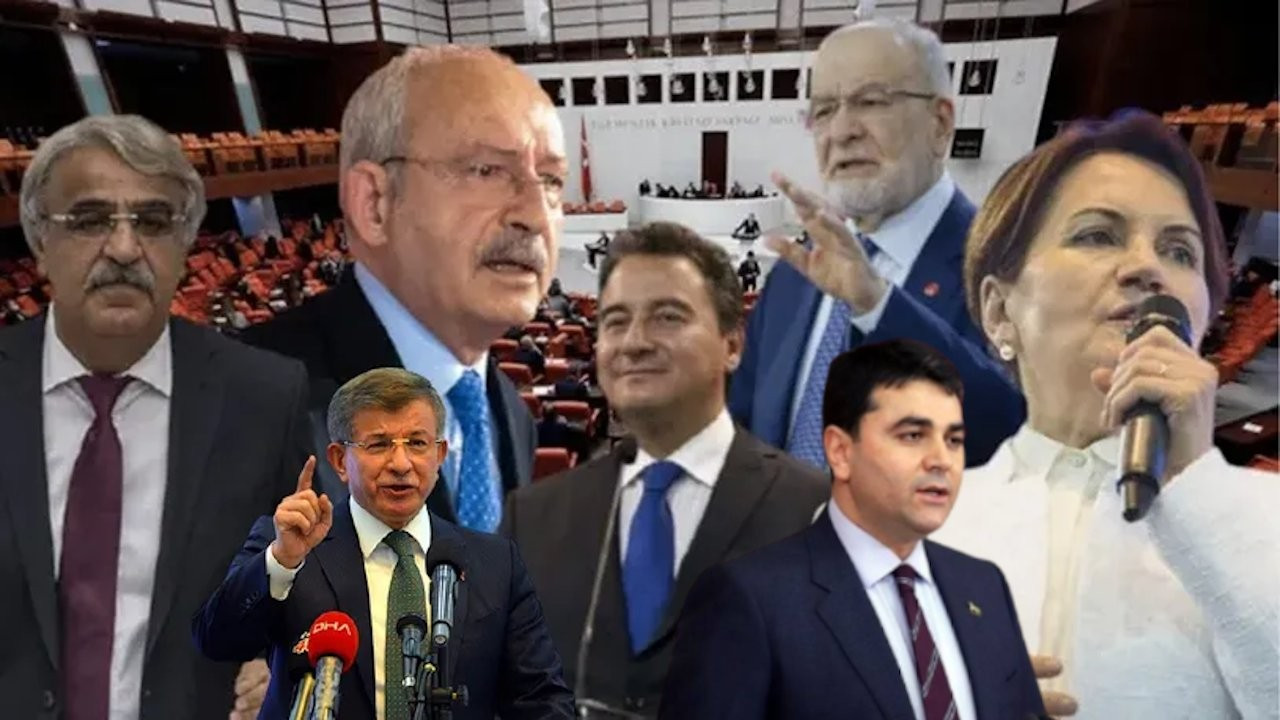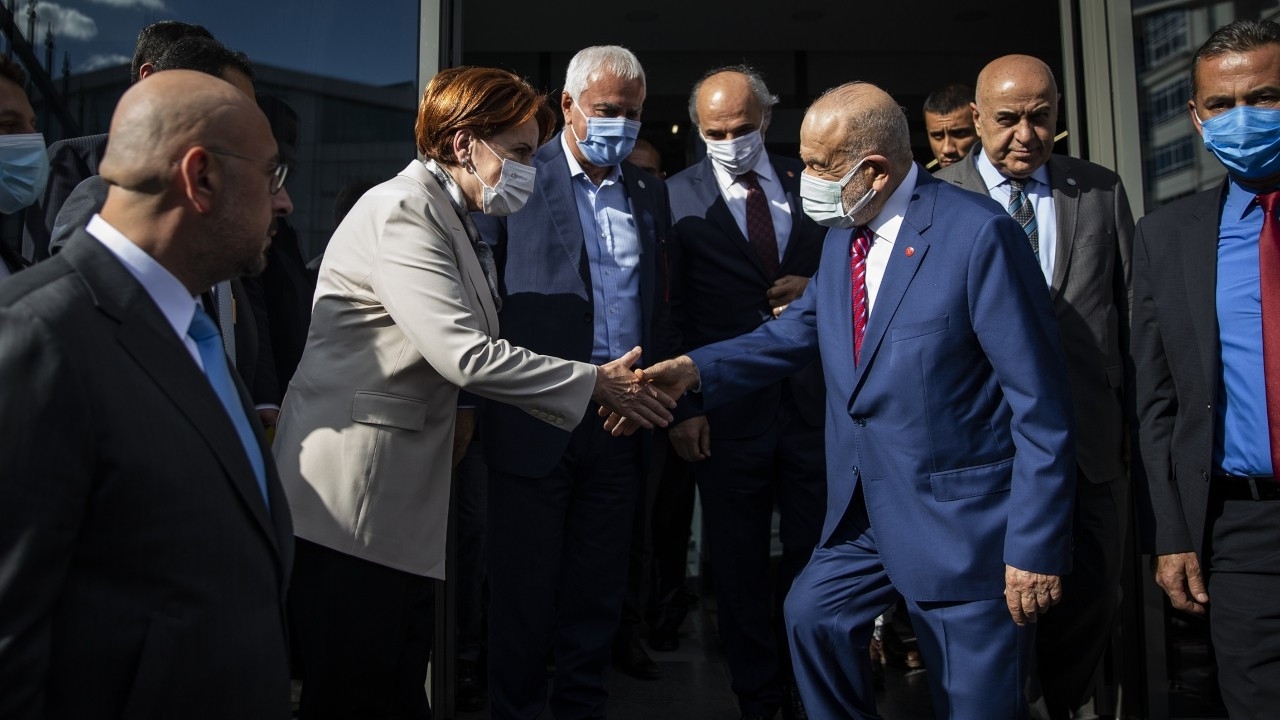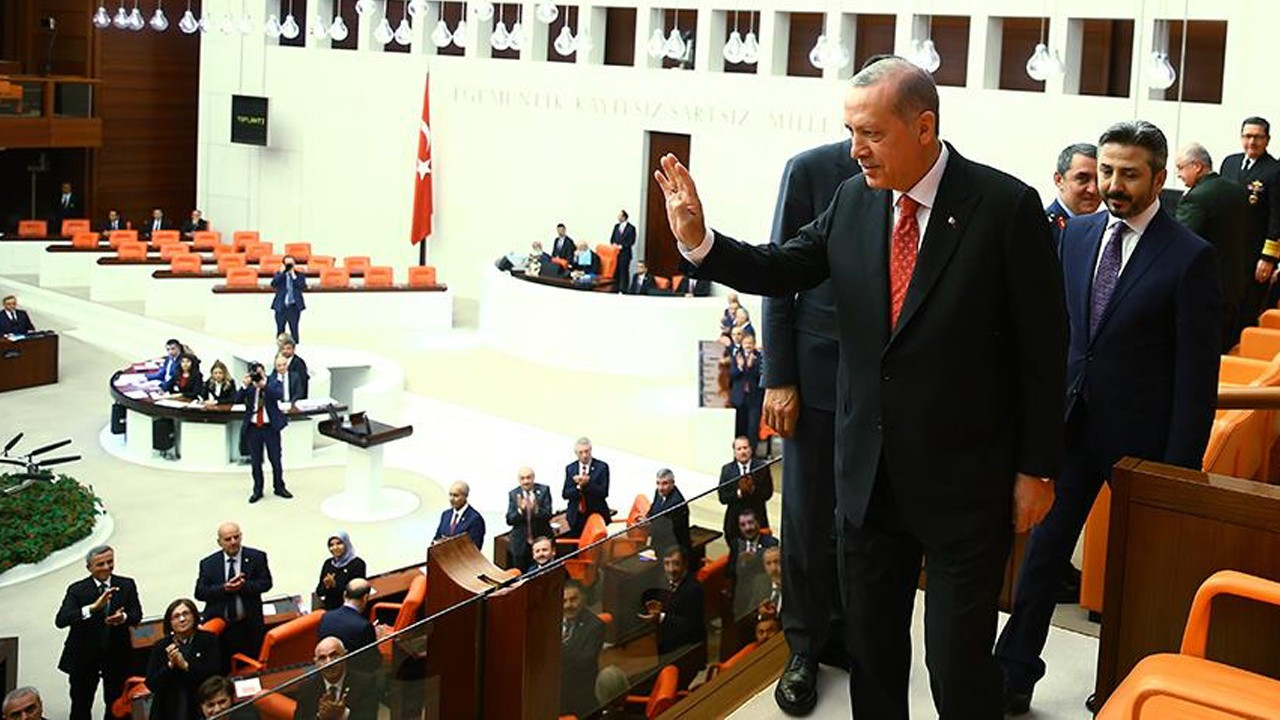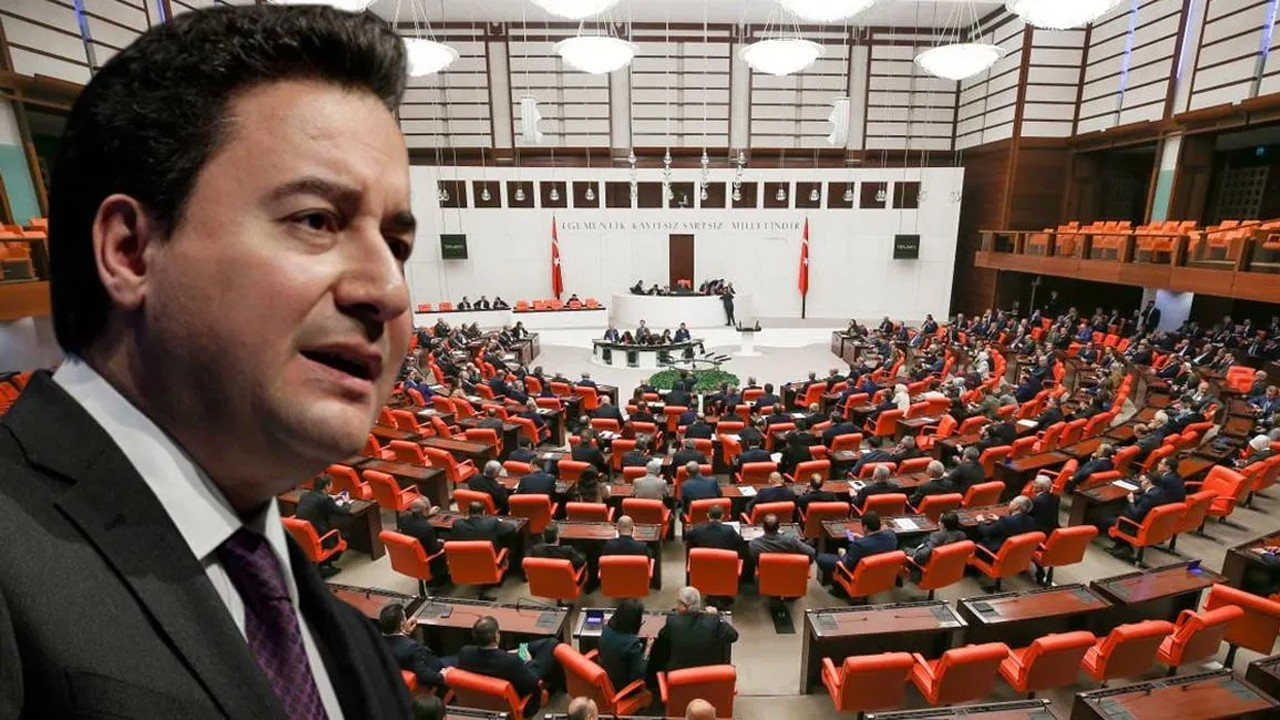Turkish opposition to discuss impartial presidency and judiciary in third meeting
In their third meeting that will take place next week in parliament, representatives of Turkey's six opposition parties will discuss details of a system that envisages a strengthened parliamentary system, impartial presidency and independent judiciary.
Duvar English
Representatives of Turkey's opposition parties will hold their third meeting on Oct. 5 in parliament, said daily Birgün on Oct. 1. The party executives will address the details of the shift from the current executive presidential system into the parliamentary system, should the opposition bloc win the upcoming elections, the daily said.
The deputy leaders of the main opposition Republican People's Party (CHP), Good (İYİ) Party, Felicity Party (Saadet), Democrat Party (DP), former deputy prime minister Ali Babacan's Democracy and Progress Party (DEVA) and former prime minister Ahmet Davutoğlu's Future Party will be present at the meeting.
The leaders of the parties have not yet attended these meetings, but are working to issue a joint declaration that will set the alliance's common principles for the next elections.
Although the DEVA and the Future Party are not part of the Nation Alliance, they frequently express their support for it.
The first two meetings agreed on the removal of extensive powers granted to the president in the current system. The opposition bloc agreed on a system in which the executive power will be solely granted to the council of ministers, with the prime minister and ministers sharing the authorities.
The new system proposed by the opposition envisages a president who will not be a member of any political party and will give an account of his actions before parliament should he lose his unbiasedness. In the new system, the ministers will be chosen from within parliament, meaning those who are not lawmakers will no longer be able to serve as a minister, as is the case in the current system.
A government will be able to formed if it receives the majority of the votes in parliament. Even if the newly formed government does not receive a vote of confidence, it will keep its duty until a new government is formed.
The opposition further wants a legislative mechanism that sees the inclusion of opposition parties. Accordingly, they seek a system in which the number of representatives of opposition parties in parliamentary commissions is increased and the practice of verbal parliamentary inquiries is reactivated.
Another issue that came to the agenda during the two previous meetings was the judiciary independence. Accordingly, the opposition bloc representatives agreed on a system that seeks a complete overhaul of the Council of Judges and Prosecutors (HSK)'s structure. The justice minister and the Justice Ministry officials will no longer be given positions in the HSK and the election of HSK members will change. These issues will be further discussed during the Oct. 5 meeting.
İYİ Party deputy chair Bahadır Erdem talked about the opposition's works to Birgün, saying that separation of powers is at the heart of the transition back from the presidential system.
“For the last three years, we [parliament] no longer have the authority to inspect the government. We neither have the budget authority. The biggest problem is with regards to legislation. In the current system, the president has himself introduced laws more than parliament itself. When we consider all this, a strengthened parliamentary system is indispensable for this country,” Erdem said.
CHP deputy chair Muharrem Erkek said that they were trying to restore parliament's power and rebuild a system in which “parliament is the main focus.” “The current system is completely a one-man system. The most basic property of this system is that a president who is a party member runs the executive branch and enslaves the legislation and judiciary,” Erkek said.
On Sept. 30, İYİ Party leader Meral Akşener and Felicity Party leader Temel Karamollaoğlu held a meeting and said that the Nation Alliance was working to issue a joint declaration which will set an outline of how the parties in the opposition bloc will move together.
A 2017 referendum in Turkey granted President Recep Tayyip Erdoğan expanded executive powers, a move which critics say has removed constitutional balances and checks and led to a further weakening of Turkish democracy.
The exclusion of presidential decrees from the review of parliament and the lack of clear limits on their scope is said to be problematic in terms of democratic balances and inspection.

 Six opposition parties discuss Turkey's return to parliamentary systemPolitics
Six opposition parties discuss Turkey's return to parliamentary systemPolitics Turkey's opposition alliance plans to announce joint declaration soonPolitics
Turkey's opposition alliance plans to announce joint declaration soonPolitics Return to parliamentary system ruled out in AKP's draft constitutionPolitics
Return to parliamentary system ruled out in AKP's draft constitutionPolitics Presidential candidate must vow to reinstate parliamentary system, Babacan saysPolitics
Presidential candidate must vow to reinstate parliamentary system, Babacan saysPolitics